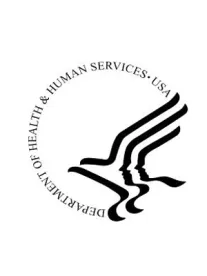The U.S. Department of Health and Human Services (HHS) recently proposed regulations that scale back nondiscrimination protections under Section 1557 of the Affordable Care Act (ACA). The new regulations, proposed on May 24, 2019, represent a marked shift in HHS’s policy by loosening the nondiscrimination requirements imposed on health plans and other entities and substantially narrowing the universe of entities covered by Section 1557.
Background
Section 1557 of the ACA generally prohibits certain health programs and activities from discriminating on the basis of race, color, national origin, age, disability or sex, or protected groups under civil rights statutes. Final regulations issued in 2016 adopted a broad application of the statute’s nondiscrimination requirement. As finalized, the regulations apply, in part, to all operations of “covered entities,” which include entities that operate health programs or activities, any part of which receives Federal financial assistance (such as Medicare subsidies). In general, a group health plan could be a covered entity if (i) it was a fully-insured plan and the insurance carrier received Federal financial assistance, (ii) it was a self-insured plan sponsored by an entity engaged in a health-related business, or (iii) it was a self-insured plan sponsored by an entity that received Federal financial assistance.
In addition, under the 2016 final regulations, HHS expanded the definition of discrimination on the basis of sex to include discrimination based on gender identity and the termination of pregnancy. However, once the regulations were put into effect, there was significant pushback against HHS’s interpretation of sex discrimination. In particular, one action challenged HHS’s inclusion of gender identity and termination of pregnancy as protected groups. Franciscan All. Inc. v. Burwell, 227 F. Supp. 3d 660 (N.D. Tex. 2016). In this case, the court not only found that the plaintiffs had standing to maintain the action, but also issued a nationwide preliminary injunction, preventing the enforcement of the department’s rule regarding gender identity and termination of pregnancy.
The 2016 regulations also contain several provisions aimed at informing participants of the nondiscrimination requirements and encouraging access for individuals with limited English proficiency. First, the regulations mandate that a covered entity take both initial and continuing steps to inform beneficiaries, enrollees, applicants and members of the public of the entity’s compliance with Section 1557. Also contained in these notices are general statements that the entity provides auxiliary aids and language assistance services to help individuals with disabilities or limited English and does not discriminate on the basis of race, color, national origin, sex, age, or disability. Second, all notices and large significant plan communications (e.g., summary plan descriptions) must contain “taglines,” or short two-sentence statements translated in the top 15 languages spoken in the relevant state(s). However, if the communication is small in size, such as a post-card or brochure, taglines in only 2 languages are required. For many plan sponsors and insurers, these notice and tagline requirements can prove quite burdensome—not only in terms of added costs to send and post such notices but also in terms of identifying which languages to use for the taglines.
Proposed Regulations
On May 24, 2019, HHS issued proposed regulations which, if finalized, would roll-back many of the requirements from the 2016 regulations. Among the proposed changes are the following:
-
Re-focus on existing civil rights laws. Perhaps the most notable change is that the new proposal encourages a return to existing civil rights laws. In summarizing this change, HHS stated that the previous regulations exceeded the agency’s regulatory authority by defining discrimination on the basis of sex to include discrimination based on gender identity or termination of pregnancy. The proposal’s preamble explains that those definitions were inconsistent with Title VI and Title IX of the Civil Rights Act of 1964 and other federal nondiscrimination rules. By returning to existing civil rights laws, HHS addressed the concerns raised in Franciscan and further narrows the scope of Section 1557.
-
Repeal and replace the covered entities definition. As proposed, the rules would apply, in part, to (i) all operations of an entity principally engaged in the business of health care that receive federal financial assistance, or (ii) an operation of an entity not principally engaged in the business of health care for which it receives federal financial assistance. The rules continue to provide that an entity principally engaged in providing health insurance would not automatically be considered an entity principally engaged in the business of providing health care. Overall, this change would narrow the scope of the regulations significantly—no longer would all operations of an non-health care entity be covered, but instead only the individual activities funded by HHS. As a result, the proposed rules would be inapplicable to most self-insured plans.
-
Repeal the mandatory notice and tagline requirements. In the preamble to the proposed regulation, HHS noted that it underestimated the costs to plans to comply with these requirements. After discussions with trade associations and large insurers, HHS now estimates that the annual burden of these requirements, which was originally estimated at $7.2 million in one-time costs, is now somewhere in the range of $147 million to $1.34 billion. As such, HHS proposes repealing in their entirety the provisions requiring taglines and nondiscrimination notices.
The new proposed regulations appear to be less burdensome than the 2016 final regulations and would apply to a smaller scope of entities. Currently, the proposed regulations are in a public comment period. If finalized in their current form, many health plans will be relieved of the burdensome disclosure requirements, including those on notices and taglines. For now, however, the 2016 final regulations still govern to the extent their enforcement is not enjoined by Franciscan.




 />i
/>i

